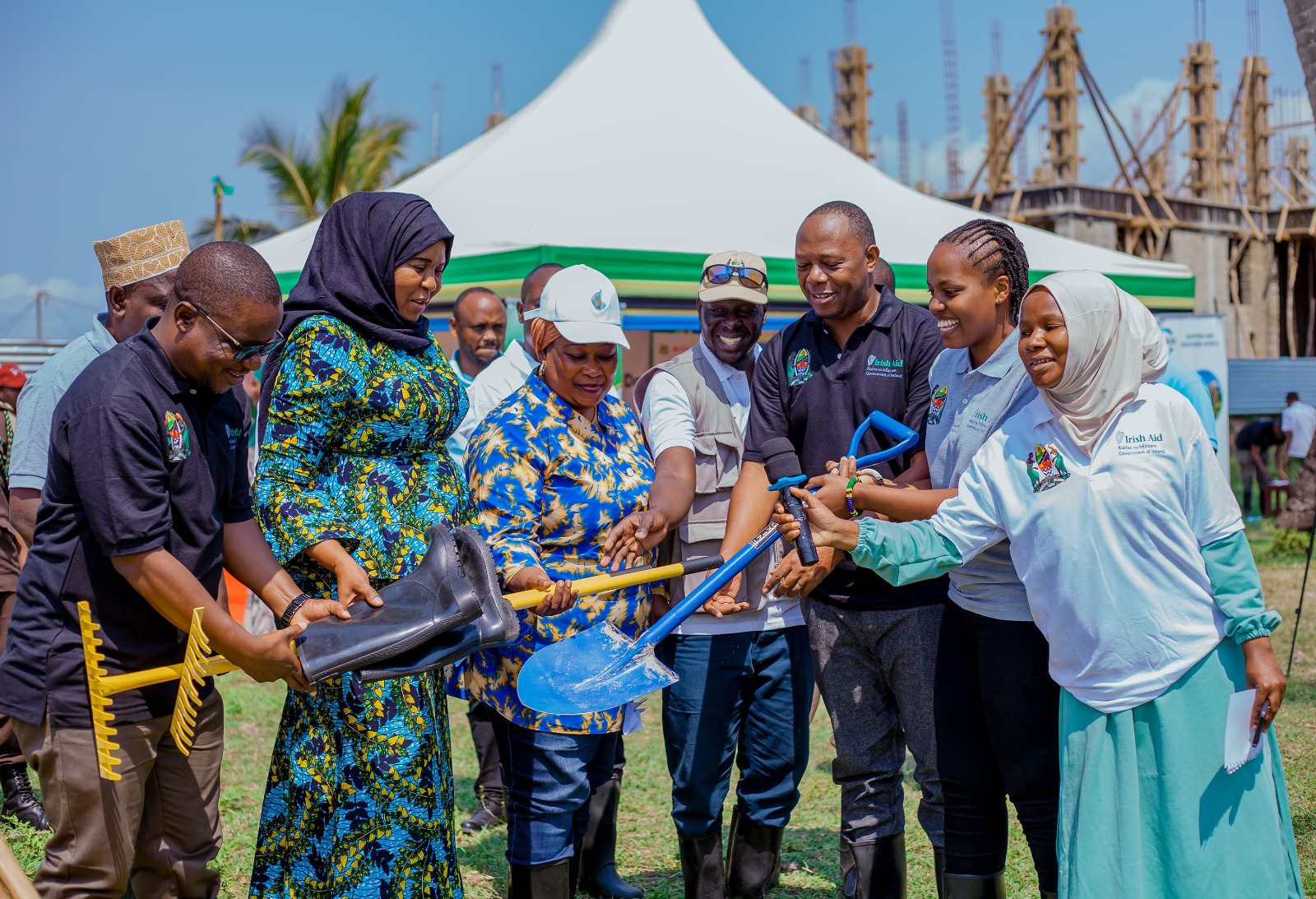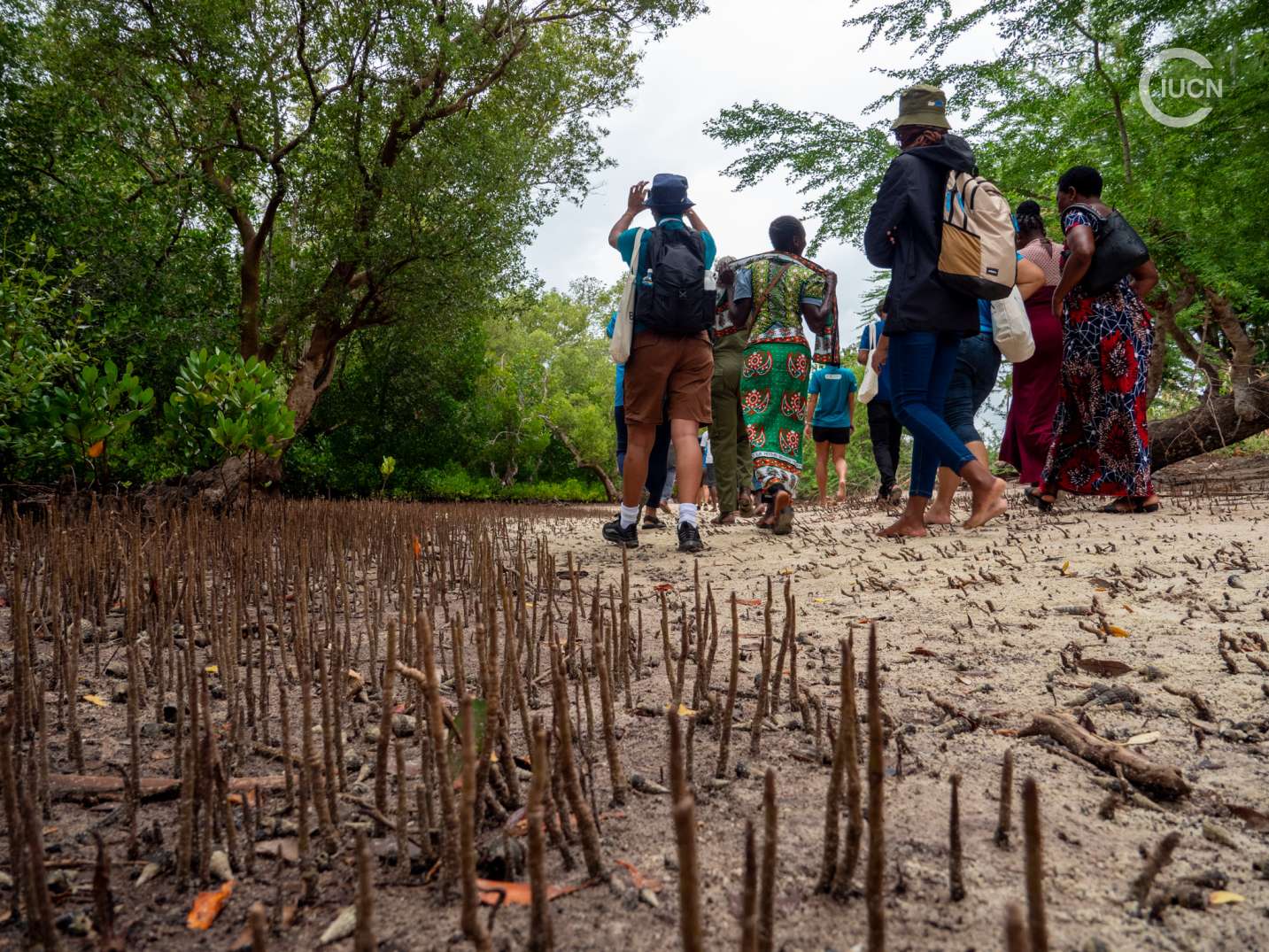The First Line of Defence: placing Local Communities at the heart of conserving biodiversity in Africa
Conservation and anti-poaching initiatives in Africa have often overlooked the invaluable perspectives and involvement of local communities living in important conservation landscapes. Learn how the First Line of Defence methodology seeks to change this dynamic and is putting local communities at the heart of it all. By Audrey Masitsa
Over the years, conservation efforts, including and those targeting poaching and illegal wildlife trade in Africa have often overlooked the invaluable insights and involvement of local communities living in the affected areas. Recognising the need for sustainability and inclusive strategies, the USAID-funded CONNECT (Conserving Natural Capital and Enhancing Collaborative Management of Transboundary Resources in East Africa) project added its support to a First Line of Defence (FLoD) training for stakeholders across East Africa.
First piloted in 2016 by the International Institute for Environment and Development (IIED), the International Union for Conservation of Nature (IUCN), IUCN Sustainable Use and Livelihoods Specialist Group (IUCN SULi), and the IUCN African Elephant Specialist Group (IUCN AfESG), the FLoD methodology was originally designed as a response to illegal wildlife trade (IWT), aiming to engage communities neighbouring or coexisting with wildlife in combating the then pressing issue. Later, a seven-part, virtual learning series was conducted to raise awareness among local communities and their conservation partners about their vital role in tackling IWT.
Building upon its success, the FLoD methodology has evolved to encompass broader conservation needs, emphasizing the active participation of local communities. Facilitator Holly Dublin, Senior Associate at IIED and Senior Advisor to IUCN ESARO, highlights the significance of the tool, "Whether it's illegal wildlife trade or other conservation challenges, the value of the FLoD methodology is to bring the community voice and perspectives to the forefront. It ensures that they gain agency and that their voices are no longer subdued, weak or even missing entirely from the active debate and discussion."
During the immersive five-day training, 20 practitioners from Kenya, Rwanda, Tanzania and Uganda delved into the FLoD methodology and embarked on a unique exercise. They first examined the theory of change from a project implementer's perspective and then donned the community's mindset to draft a theory of change that incorporated the day-to-day realities faced by local residents. Using everyday objects like stones and animal figurines, they created scenarios and engaged in lively debates where the “would-be” community members shared what was truly important to them in terms of conservation efforts.
“From this training, we’ve seen that there’s a lot of interest in the overall approach. We’ve had discussions with the participants about how they can use the methodology in their context to bring out the community voice. We discussed that they can use the full methodology or the full components depending on their need,” comments facilitator Christine Mentzel, Senior Programme Officer, Conservation Areas and Species with IUCN ESARO. “The trainees were able to experience how they could take this tool to go and sit with the community and have open and frank exchanges about their perceptions and aspirations,” adds facilitator Dilys Roe, Chair of IUCN SULi and Principal Researcher at IIED.
While exploring the potential of the FLoD tool, participants expressed their desire to incorporate the community voice into their project work. “We have many projects that we have already implemented where we engage the community; we always take the community on board, but this training was tremendous,” states Jean Ferus Niyomwungeri, Community Conservation Programme Manager at Rwanda Wildlife Conservation Association. “I’m planning to introduce this tool as something that can help me and my organisation to continuously engage communities in our projects. They are the ones who live closest to the wildlife we are protecting, and it is vital that they also feel the benefits.”
Participants also discovered that the FLoD tool can complement other methodologies they currently employ. Nancy Ingutia, Head of Community Partnership Programs at Ol Jogi Wildlife Conservancy, expressed her plans, saying, "I will integrate aspects from this training into my daily work, particularly to enhance what I learned from the SAPA methodology. FLoD will complement the highlights indicated by SAPA."
The training included a visit to the Naretunoi Community Conservancy, supported by The Wildlife Foundation. Here, participants witnessed firsthand how conservationists and the local community collaborate to achieve human-wildlife coexistence. The Maasai community, residing in the Kitengela Dispersal area near Nairobi National Park, receive support through a lease programme, enabling them to conserve biodiversity, maintain their pastoralist way of life, reduce poaching activities, and build resilience by diversifying their livelihoods, thereby ensuring economic sustainability.
The FLoD methodology has broader applications. "When it comes to social safeguards and obtaining free, prior and informed consent, FLoD could be an incredible tool," explains Holly. "It allows us to genuinely capture the community's voice without barriers."
The methodology, with its community-centred approach, seeks to keep contributing to the understanding of local communities' motivations and aspirations. Dr Alain Ndoli, CONNECT Chief of Party with IUCN ESARO adds, “The role of local communities in combating illegal wildlife trade is recognised as central to effective anti-poaching and broader conservation strategies. When governments, communities, environmental NGOs and other stakeholders work together, they bring a positive influence to conservation outcomes since levels of trust tremendously increase.”
By incorporating these insights, policymakers, practitioners, and development partners can continue to create sustainable and inclusive conservation strategies to deliver a brighter future for conservation in Africa.
This FLoD training was made possible by the generous support of the American people through the (CONNECT) Project. CONNECT, a consortium comprised of the East African Community (EAC), IUCN, TRAFFIC, and WWF, aims to capitalise and build on existing conservation initiatives, information, methodologies, best practices, resources and approaches to combating illegal wildlife trade, as well as injecting new and innovative thinking to strengthen wildlife conservation action and policy at the regional level for the benefit of the Partner States of the EAC.



